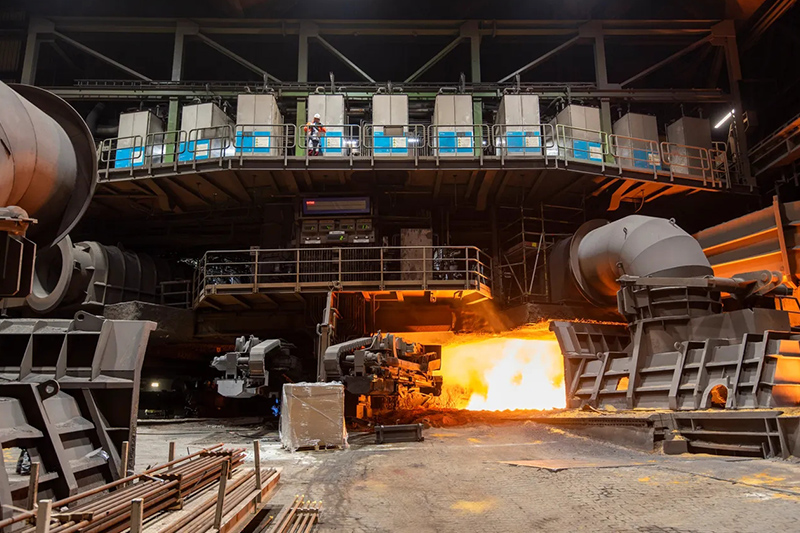Blast furnace operators can conventionally lower operating costs through injection of alternative fuels with the hot air blast (most commonly pulverized coal) in order to reduce the required coke rate in the burden. Additional oxygen enrichment is required to promote combustion for the added fuel. Whilst benefiting the economic aspects for the furnace, this also results in a number of process and operational challenges. Combustion of the fuel localized in the raceway entry leads to higher heat loads on the shell and un-combusted material (char) can accumulate in the burden. This impedes gas flow and drainage, ultimately reducing the furnace performance efficiency.

The patented SIP technology acts to repurpose the enrichment oxygen, and deliver a series of controlled, high-energy pulses, increasing local concentration in the raceway. The resulting action is improved combustion and conversion of fuel, leading to better gas distribution and drainage potential. Additionally, through higher penetration of the oxygen, the heat load generated is moved more to the central zone of the furnace. The small coke proportion in the burden can be increased without loss of permeability or increased overall pressure drop. These conditions permit an increase in the replacement of coke with injectant and higher production potential whist avoiding deterioration of the process conditions.
Total fuel rate can be lowered and, as a result, the added benefit of reduced carbon dioxide emission is achieved. The SIP technology therefore brings multiple advantages in terms of significant savings in overall operating costs and supports the blast furnace operators in their moves towards carbon neutrality.
“The cooperation makes a lot of sense for Primetals Technologies because our plant building competence and blast furnace process knowledge are complemented by qwe’s vast operating expertise, particularly on large units. We’ve been engaged for some time now in supporting our customers in developing their roadmaps to carbon neutrality. We know that new technologies will eventually replace the blast furnace, but these will take a long time to mature. Currently process improvements which reduce costs and improve the green credentials are critically important to steelmakers globally. This technical development is not only time relevant, but the strength of each partner also makes this a great fit to meet customer expectations.”